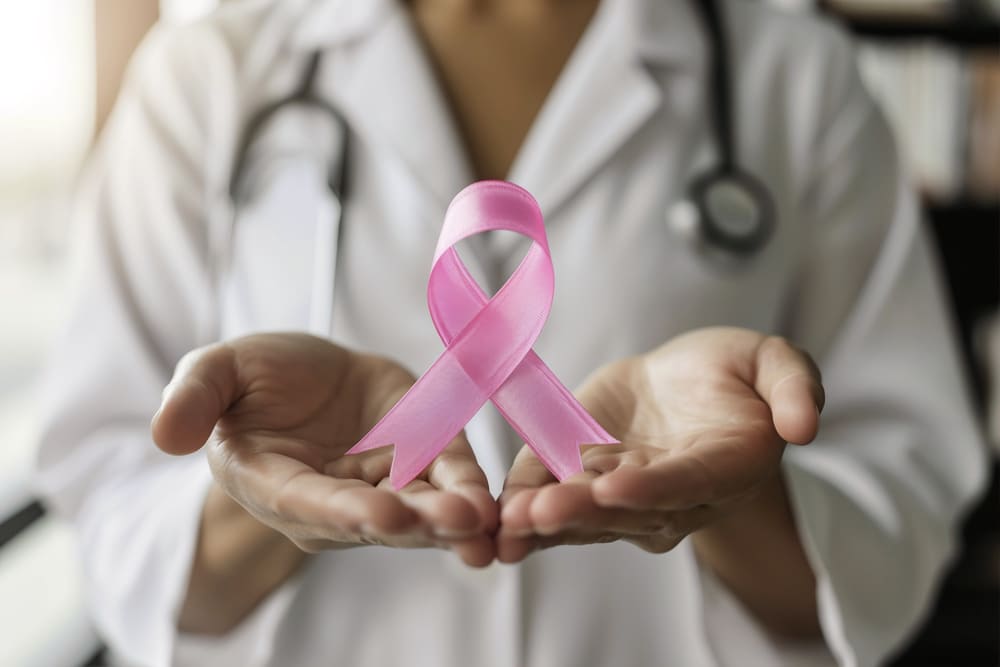Breast cancer is one of the most common cancers in women worldwide. Although survival rates have greatly improved, its treatments can affect fertility: chemotherapy, hormone therapy, and radiation, which save lives, sometimes damage eggs or disrupt your menstrual cycle.
Here we explain how breast cancer and its therapies can influence your fertility and what options you have to preserve it before starting treatment.
How does the hormonal sensitivity of breast cancer affect your fertility?
Estrogen receptor–positive (ER+) or progesterone receptor–positive (PR+) tumors depend on hormones to grow and can make your cycle irregular or stop ovulation. Additionally, the emotional stress of the diagnosis can disrupt hypothalamic function, further complicating menstruation.
Before any treatment, talk to your assisted reproduction specialist. They will guide you on the impact on your fertility and the best options for you.
Effects of chemotherapy, radiation, and surgery on ovarian reserve
Alkylating agents such as cyclophosphamide can damage ovarian follicles and cause early menopause. Women under 35 usually recover better, but infertility remains a risk. Pelvic radiation permanently reduces ovarian reserve (measured by AMH in ng/mL). Prophylactic oophorectomy in BRCA mutation carriers eliminates the ability to conceive naturally.
Fertility preservation options
- Egg or embryo freezing: Retrieval and cryopreservation of oocytes (follicular fluid volume in mL) or embryos if you have sperm from a partner or donor.
- Ovarian suppression: GnRH agonists (leuprolide acetate 3.75 mg IM monthly) during chemotherapy to protect the ovaries.
- Ovarian tissue freezing: Experimental cryopreservation of ovarian cortex (1–2 g) for future reimplantation.
- Gestational surrogacy: Use of frozen eggs or embryos with a gestational carrier if your uterus cannot support a pregnancy.
Monitoring your reproductive health after treatment
After chemotherapy or radiation, measure your AMH (ng/mL) and perform an antral follicle count (AFC) to assess your ovarian reserve. Resuming menstrual cycles does not guarantee full fertility. If you take tamoxifen (20 mg/day), wait until completing 5–10 years of treatment before trying to conceive.
Genetic counseling and hereditary risks
If you have BRCA1/BRCA2 mutations, a genetic counselor will help you evaluate transmission risk. With preimplantation genetic diagnosis (PGD) in IVF, you can select embryos without the mutation, reducing the anxiety of passing on risk.
For more information, visit “Breast Cancer and Fertility” or “Ovarian Cancer and Fertility: What Options Do Women Have?”.
Frequently Asked Questions (FAQ)
How likely is fertility recovery after chemotherapy?
It depends on your age and the type and dose of chemotherapy. Those under 35 are more likely to ovulate again, but egg damage can be irreversible. Have an AMH test (ng/mL) and AFC 6–12 months after therapy to assess your reproductive potential.
How long should I wait to try for a pregnancy?
It is recommended to wait 6 to 12 months after chemotherapy to recover ovarian function and reduce risks. If you take tamoxifen, your oncologist will advise whether it’s better to complete the 5-year treatment before trying to conceive.
Which preservation method is most effective for young women?
Egg or embryo freezing offers success rates above 35% per cycle in women under 35. Ovarian suppression with GnRH agonists reduces damage by 20–50%. Ovarian tissue cryopreservation is promising but still experimental.
Is surrogacy safe for cancer survivors?
Surrogacy allows your embryos to be carried by another person, avoiding risks to your health. It requires meeting legal requirements and psychological support for you and the surrogate. Consult your reproduction clinic for protocols.
Sources
- American Society of Clinical Oncology. (2020). Fertility Preservation in Patients With Cancer: ASCO Clinical Practice Guideline Update. Journal of Clinical Oncology, 38(7), 780–796.
- National Cancer Institute. (2023). Fertility and Cancer. MedlinePlus.
- Practice Committee of the American Society for Reproductive Medicine. (2013). Mature oocyte cryopreservation: a guideline. Fertility and Sterility, 99(1), 37–43.
- Mertes et al. (2008). ESHRE Task Force on Ethics and Law 10: Insurance for assisted reproductive technology. Human Reproduction, 23(6), 1267–1271.
Remember: every case is unique. If you’re considering having children after breast cancer, seek support from an assisted reproduction specialist. You are not alone on this journey!

